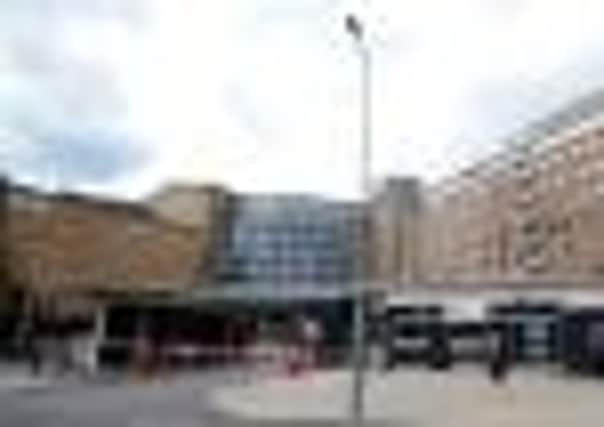BBC makes £200m by selling iconic Television Centre


Its main circular building nicknamed “the doughnut” by staff, was used as the backdrop for a number of programmes and was granted Grade II listed status by English Heritage in 2009, protecting it from demolition.
When it opened in June 1960, it was hailed as the biggest broadcasting facility in the world.
Advertisement
Hide AdAdvertisement
Hide AdAmong the shows recorded in its studios were Fawlty Towers, Monty Python’s Flying Circus, Blue Peter, Doctor Who and Strictly Come Dancing.
The site was also home to the Blue Peter garden, which has been relocated to Salford, Manchester.
A BBC statement yesterday said the corporation “exchanged contracts” with property developer Stanhope on Saturday. When the sale process was first announced, the then programme director Richard Deverell said the building had “played an extraordinary and central role in the history of the BBC” and would “not be forgotten”.
The 14-acre site in White City, west London, will be empty by 2015 after staff have been moved to other sites including Media City in Salford and the new Broadcasting House in central London. The end of an era in broadcasting history came in September 2010 when Jana Bennett, the corporation’s director of vision, announced the BBC was to stop broadcasting from the site in 2013 and was “inviting bid proposals from people looking for a conventional freehold property or those interested in a joint venture”.
Factors believed to have influenced the decision to sell up include changes to how programmes are commissioned, relocation of certain processes to broadcasting facilities around the UK, including Glasgow and Manchester, and a steep increase in property values sparked by the opening of the nearby Westfield shopping centre.
Prior to the opening of Tele-vision Centre, broadcasting had been based at Alexandra Palace and Lime Grove Studios. The centre was originally planned as a six-acre site but ended up being more than double the size.
Last night Andrew Jones, a former BBC senior manager and head of journalism at Robert Gordon University in Aberdeen, said: “It was a special place because it was the hub of television production.
“It had these very large television studios and you could walk into all sorts of people from news and big entertainment in its corridors. Staff working there loved the fact that it was a hive of activity, there was so much going on.
Advertisement
Hide AdAdvertisement
Hide Ad“What changed was that the BBC was expected to commission more programmes by independent producers and Television Centre was the big loser in that as its hub was gradually eroded and programmes moved elsewhere.”